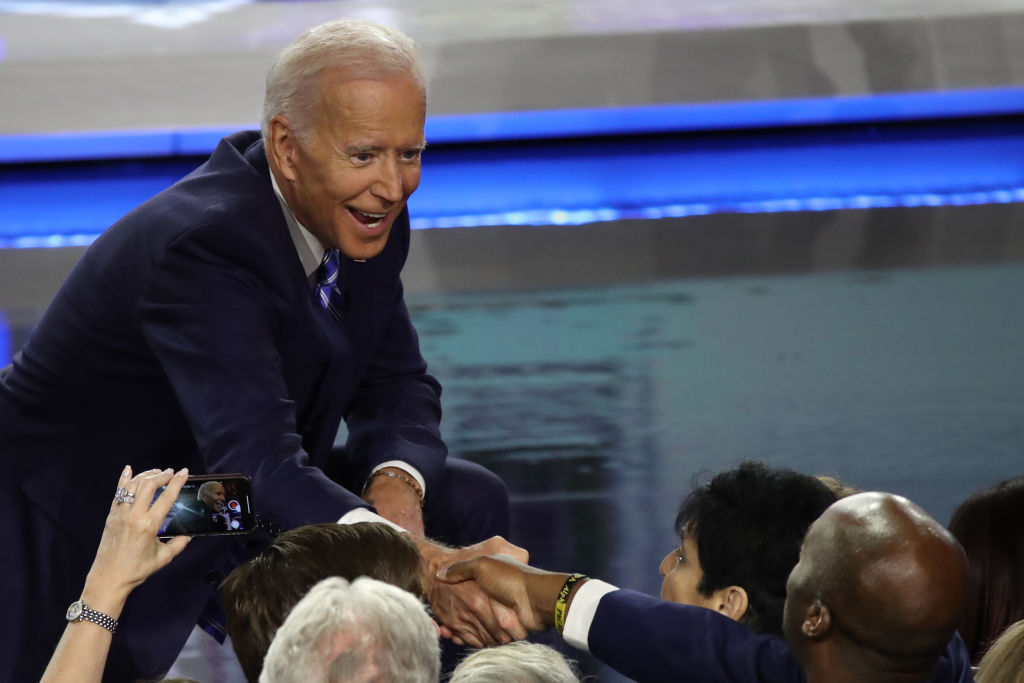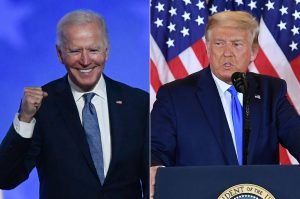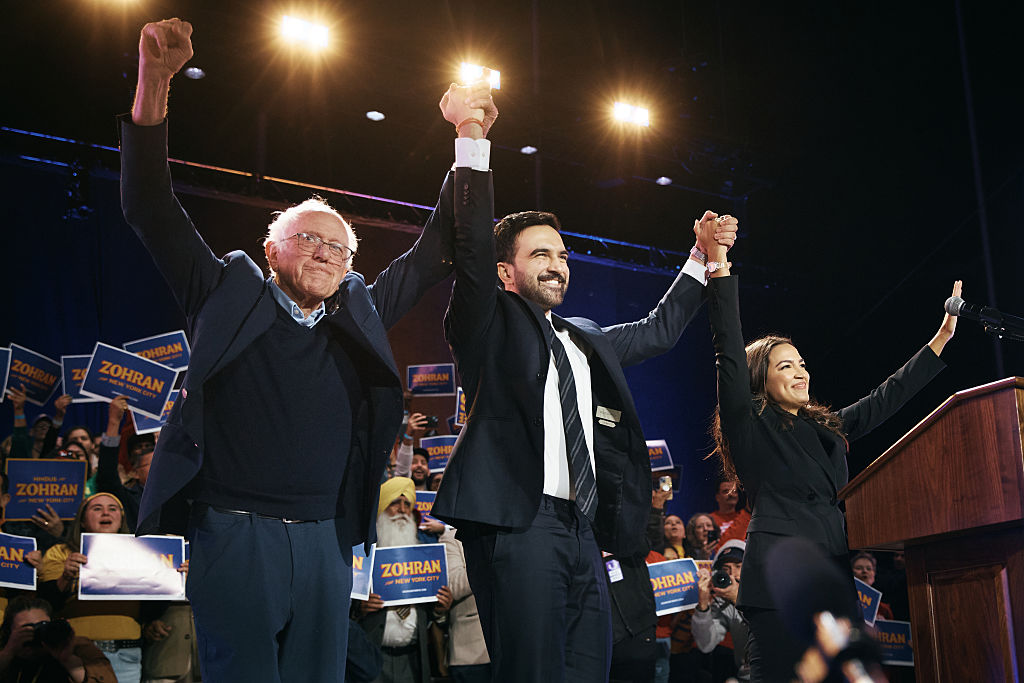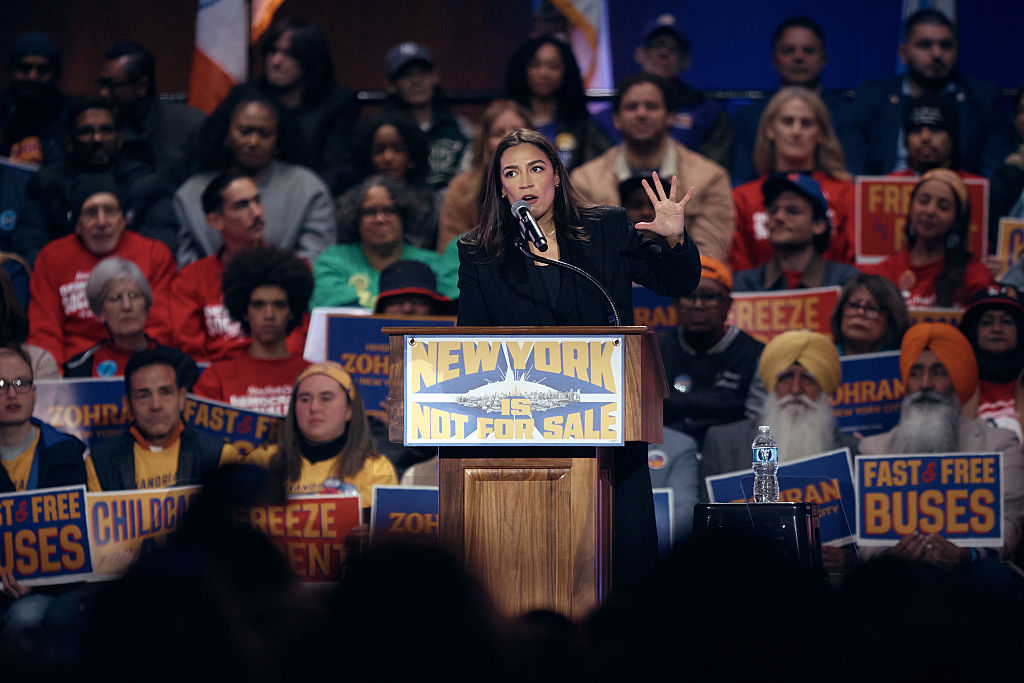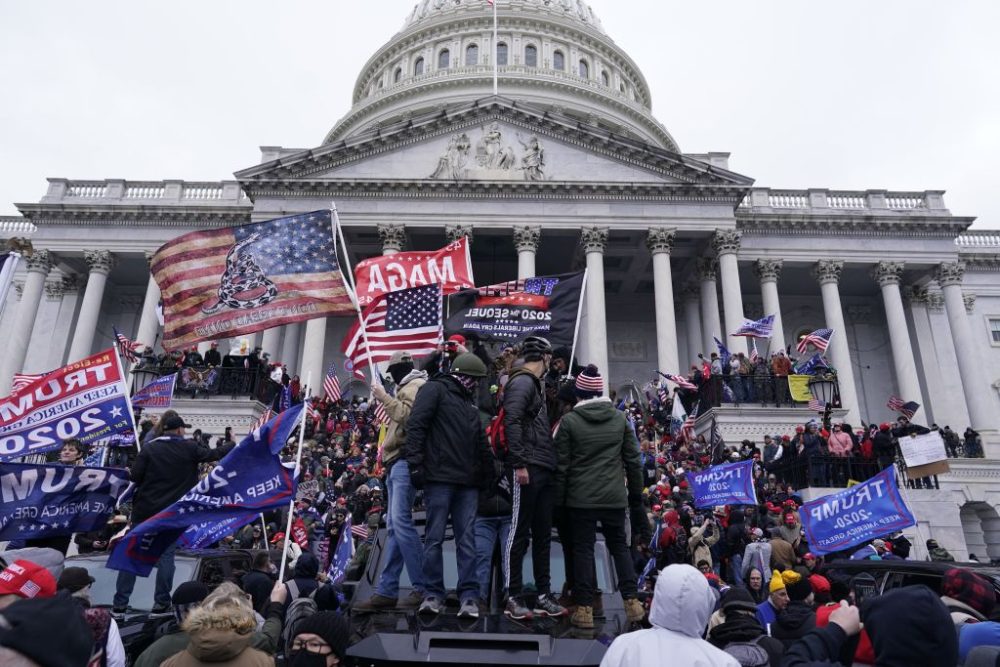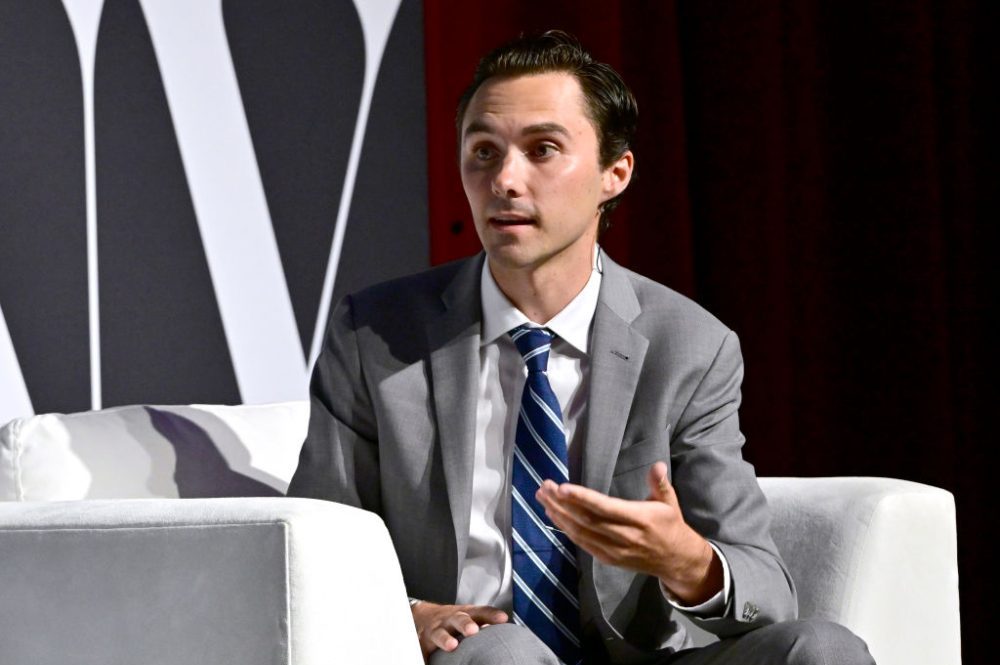‘Folks, this is not that hard to figure out,’ as Joe Biden might put it. The Democrats’ activist base has moved so far left that winning their support imperils the party in the general election.
That perverse logic was on full display in Miami this week. The debates over two nights showed a party that has changed significantly since Hillary Clinton won the nomination in 2016. Back then, Bernie Sanders’s socialist positions were insurgent, outsider stances. Now, they are mainstream positions among top-tier Democratic candidates. That’s certainly true for Sens. Elizabeth Warren, Kamala Harris and Cory Booker. Joe Biden and Sen. Amy Klobuchar have tried to resist, but they, too, are being pulled left by party activists, where all the energy and campaign donations lie.
Whoever wins the nomination will pay a high political price to capture the activists’ support. That’s true across a broad range of issues, including immigration, health care, abortion, the environment, gun control, and a bigger, more expensive national government. On all these issues, polls show most voters take pragmatic, centrist positions. That’s certainly true of swing voters in crucial purple states like Ohio, Michigan, Pennsylvania, Minnesota, North Carolina and Georgia.
Those swing voters will not applaud, as the audiences in Miami did, when told that crossing our borders illegally should be a minor civil matter, not a crime. They will not gladly pay for free healthcare for everybody who comes into the country illegally, a position endorsed by all the candidates in the second night debate, including Biden. They will not support third-trimester abortions with few restrictions. On guns, they favor some restrictions but not much tougher, more intrusive ones like Cory Booker’s idea of licensing all owners. They are troubled by climate change but give it a relatively low priority and don’t want to pay a lot for ‘green energy’ plans. They certainly will not be coerced into a one-size-fits-all government health plan that forces them to give up their private health insurance (the position taken by Sanders, Warren, and Harris). They see lots of problems with American healthcare, but they’ve looked at the VA system, where the government really is in charge, and they don’t like what they see.
The middle of the political spectrum is where persuadable voters lie in critical swing states. Those voters are persuadable precisely because so many are repelled by President Trump’s brash, aggressive personality. They like many of his policies, especially on the economy, but they loathe his crassness, blunt language, and thin skin. They want a steadier leader who conveys more dignity in office. That’s why, despite an economy as robust as America’s is today, the president’s approval stands in the low 40 percent range, not 10 points higher.
Trump’s weak numbers should leave the door open for a strong Democratic challenger in November 2020.
But the Democrats’ activist base — the folks who wear candidate t-shirts, go door-to-door, and pay for TV ads — are now inflicting the same damage on their party that Republican activists so often inflict on theirs. The zealots are in charge, eager to promote candidates that toss them red meat or, in the Democrats’ case, organic veggie burgers. That is exactly how the Republicans managed the near-impossible task of losing a Senate seat in Alabama.
The applause lines in Miami showed the Democrats’ basic problem in stark relief. As the primaries heat up, that problem will only get worse. The more intense the battle to win the nomination, the greater the incentives to move left to capture the activist base.
Joe Biden will be hit hardest by this battle for hearts and minds. His main advantage, after all, is his purported electability. That hinges on his reputation as a political moderate who can work across the aisles.
If he abandons those center-left positions to win the nomination, his will be a Pyrrhic victory. He is already moving down that path. Gone is his long-held opposition to federal funding for abortions. Now, he’s for it. Gone is his old support for restricting Obamacare to those in the US legally. Now, he wants to cover the undocumented. Gone is his old, tough-on-crime position. Now, he’s apologized for that. He is not alone. Kamala Harris, for example, has jettisoned her record as a tough prosecutor, the position that propelled her to the Senate.
Nancy Pelosi faces the same winds of change in the House, where she fights to control a caucus where the energy is clearly on the left. Pelosi is a shrewd operator and, as speaker, she wields considerable institutional power to limit more extreme initiatives. She fears, quite rightly, that they would jeopardize her party’s control in 2020. She’s had to fight tough battles, but, so far, she’s been winning.
In the primary race, however, there are no such institutional constraints. Party leaders hold almost no power.
It’s a wide-open process, dominated by the activist left. The result is a Catch-22: The best policies to win the primary are the worst ones to win the White House; but a candidate cannot vie for the White House without first winning the primaries.
Joseph Heller and Capt. John Yossarian would understand.



